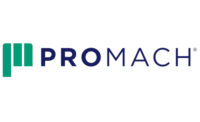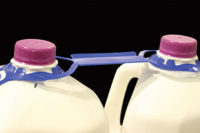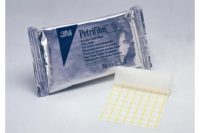
While the manual three-vat system the company had used for years to produce the Sinton and Nordica brands cottage cheese and sour cream was becoming obsolete, it was difficult for Sinton management to change something that was working so well.
"We had seen some automated systems that really grind up the curd," says Operations Mgr. Bill Keating. "We wanted to automate and to be able to produce more cheese, but we also wanted to take care of the curd, because that's our signature product."
But a business has to grow.

Eventually Sinton found a system that was both highly efficient and gentle on the curd, and by April 2003 it completed a 10,000 sq ft expansion that tripled its cheese capacity. The new cheese room features four 3,800 gal vats, an automated curd draining and rinsing system and two new fillers with Spot-Pak casers and a robotic palletizer. The $8 million project took about one year to complete.

An outstanding cheese room
The cheese room is supplied with milk from a new 30,000 gal skim milk silo.The room is outfitted with an epoxy resin aggregate floor, which Keating finds to be much more damage- resistant than traditional acid brick. Special thermal wall material was used to protect against moisture and contamination problems. Drop ceilings keep horizontal piping and control conduits separate from the cheesemaking and filling operations.
The four vats and the automated curd handling system at the center of the operation were designed and manufactured by Kusel Equipment Co., Watertown, Wis. The system allows Sinton to fill eight vats a day instead of three. Monthly capacity has gone from about 700,000 lbs to about 2.5 million lbs.
"With our old system everything happened right in the vats," says Production Mgr. Mike Maloney. "We would set the cheese, cut the curd and rinse it and dress it right in the vat. Now we can get the curd out of the vat and re-set it as soon as possible."
With the automated system, the curd and whey are conveyed to a large cylindrical tank which the staff affectionately refers
to as "the submarine." This drainer/rinser augers the curds through a rinse cycle that takes about seven minutes. The curd and water is then moved to one of three drainer/creamer tanks where the remaining water and whey is drained and the cream dressing is added.
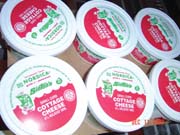
On the filler side, two Holmatic fillers, from Packaging Solutions, Davenport, Iowa are used. A two-lane unit fills 3 lb and 5 lb tubs while a three-lane unit is used for 8 oz, 12 oz, 16 oz., and 24 oz cups.
The cups and tubs are then sent to one of two different Spot-Pak units from Delkor Systems Inc., Circle Pines, Minn.
A robotic palletizer was manufactured by IP Automation, Colorado Springs. It is isolated from the filling area, and it's able to stack pallets from both lines simultaneously.
It takes just a cheesemaker and a helper to operate the Kusel system in the cheesemaking room. Five operators can run both filling lines and palletizers simultaneously.
Sour cream is made in three batch tanks in the same room as the cottage cheese, and filled on the same filling lines.
"We had the first Spot-Pak unit in the U.S.," Keating boasts. "We turned it in when we got the new ones and I think Delkor is using it as a museum piece or something."
Indeed Dale Andersen, president of Delkor confirmed he is keeping the first machine at Delkor for historical value. According to Andersen, "I thought it was rather humorous when someone first mentioned keeping the Sinton machine, but after giving it some thought I agreed. Spot-Pak really changed packaging for the North American dairy industry."
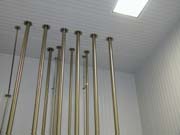
Quality recognized
Sinton has been making dairy products in Colorado for more than 120 years. The plant used today was built in 1956 and underwent a major renovation in the early 1970s. It has several fluid lines that produce milk, orange juice, buttermilk, and ice cream mix. An on-site blow molding operation produces a million bottles a month.
A long-time member of Quality Chekd Dairies, Sinton was presented with the association's Irving B. Weber Award in 2003. The award is the Quality Chekd's most prestigious and involves a product quality analysis and a plant audit.

While cottage cheese and sour cream are Sinton's flagship products, about 70% of its business is in milk, juice and ice cream mix.

Plant-wide there are more than 60 employees working seven days a week.
Sidebar:Sinton Dairy Steeped in History, Poised for the Future
In 1880 brothers George and Melvin Sinton of Ithaca, N.Y., founded Colorado's first dairy business. At the outset of the 21st century Sinton Dairy is manufacturing products for distribution throughout the west and laying the groundwork for future success.In October, the company which had been owned by a team of veteran Sinton managers since 1987, was sold to National Dairy Holdings, Dallas. Many milestones have been passed in the years since the Sinton Brothers began with 12 red cows and a horse-drawn delivery cart.
1906 Sinton Dairy Co. is incorporated.
1907 Sinton introduces pasteurized milk to Colorado.
1956A modern plant is opened
1965 Sinton joins Quality Chekd Dairies.
1968 Fairmont Dairy is acquired, giving Sinton access to the Denver market.
1980 A 52% share of the company is purchased by Associated Grocers of Colorado.
1987 Associated Grocers declares bankruptcy and four members of Sinton's management purchase the company.
2003 Sinton hosts a plant visit from the Quality Chekd conference, captures the Irving Weber award and completes its cheese room expansion.
Dairy Farmers of America has been a shareholder in Sinton for many years, and is the company's sole milk supplier. Former Sinton President Larry Losasso retired in 2003 and his desire to retire led to the plan for management to sell the remaining share of the company to National Dairy Holdings, which is also partially owned by DFA.
"We were looking for somebody committed to the business, who has a long-term commitment to the dairy industry, and certainly DFA is that somebody," said Joel Midkiff, one of the 1987 buyout partners who now serves as general mgr.
With more than 220 employees, Sinton is one of Colorado's largest dairy companies. Its headquarters in Colorado Springs is located near several scenic Colorado landmarks including Pikes Peak and the Garden of the Gods rock formations.
Vendors:
Kusel Food EquipmentWatertown, Wis.
920/261-4112
www.kuselequipment.com
Ecolab
St. Paul, Minn.
800/392-3392
www.ecolab.com
Airlite Plastics Co.
Omaha, Neb.
800/228-9545
www.airliteplastics.com
Delkor Systems Inc.
Circle Pines, Minn.
800/328-5558
www.delkorsystems.com
Portola Packaging
San Jose, Calif.
800/PORTOLA
www.portolapackaging.com
Tufco Flooring
Gentry, Ark.
800/364-0836
www.tufcoflooring.com
American Thermal Systems, Inc.
Conroe, Texas
936/441-6100
